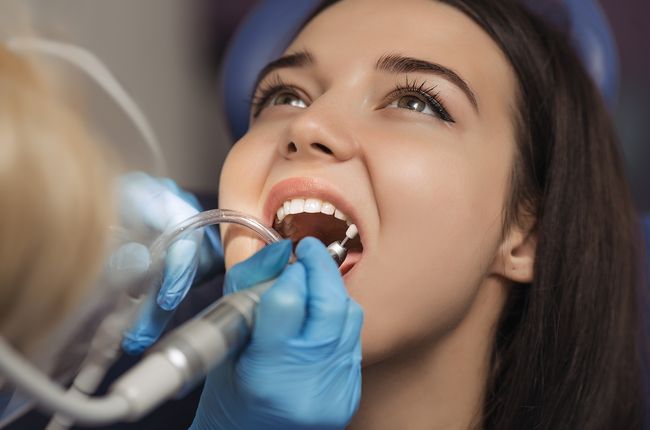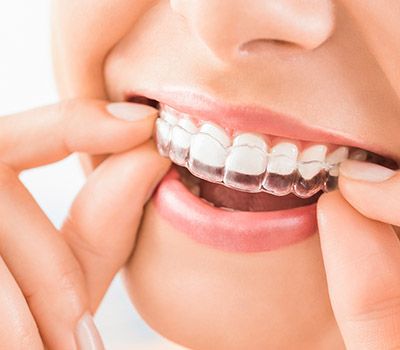TMJ Treatment
Temporomandibular Joint Disorder (TMJ) is a common condition affecting the jaw joint and surrounding muscles. Many people in Colorado Springs experience discomfort and pain related to TMJ, which can significantly impact their quality of life. The good news is that TMJ Treatment in Colorado Springs, CO, is accessible andeffective, allowing patients to regain comfort and functionality. Whether you're dealing with mild discomfort or severe jaw pain, it's crucial to understand the symptoms of TMJ, available treatment options, and the importance of visiting aDentist in Colorado Springs, CO, for specialized care.
Introduction to TMJ Disorders
The temporomandibular joint, commonly known as the TMJ, acts as a sliding hinge connecting the jawbone to the skull. It plays a vital role in everyday functions like talking, chewing, and yawning. When this joint becomes misaligned or experiences other issues, it can result in a TMJ disorder. While the exact causes of TMJ disorders are not always clear, they can be attributed to factors like injury, arthritis, or grinding of teeth (bruxism). Fortunately, specialized TMJ Treatment in Colorado Springs, CO, canoffer relief fromthese often debilitating symptoms.
If you're experiencing jaw pain, stiffness, or difficulty opening and closing your mouth, it's time to take action. Identifying the symptoms of TMJ and exploring available treatments is the first step toward finding relief.
What Are the Symptoms of TMJ?
TMJ disorders can present themselves in a variety of ways, and symptoms can range from mild to severe. If you suspect you may have TMJ, here are the most common symptoms to be aware of:
- Jaw Pain: One of the hallmark symptoms of TMJ is persistent pain in the jaw area. This pain can be felt on one or both sides of the jaw and may worsen when chewing or talking.
- Headaches: TMJ disorders are often linked to tension headaches or migraines, making it difficult to focus on daily activities.
- Ear Pain: Some people with TMJ experience earaches or a feeling of fullness in the ear, even though there's no infection.
- Clicking or Popping Sounds: Hearing clicking, popping, or grating sounds when you open or close your mouth clearly indicates TMJ. These sounds are often accompanied by discomfort or pain.
- Limited Jaw Movement: In severe cases, TMJ can limit one's ability to open or close one's mouth fully. This stiffness may feel like one's jaw is "locking."
- Facial Pain or Swelling: Tenderness or swelling in the muscles around the jaw and face is a common TMJ symptom.
- Difficulty Chewing: Pain or discomfort while chewing is another sign that you might be dealing with TMJ.
If you are experiencing any of these symptoms, consulting a Dentist in Colorado Springs, CO, specializing in TMJ disorders, is crucial. Early diagnosis can lead to more effective treatment and prevent the condition from worsening. Socontact ustoday at Champion Smiles Family Dentistry for the best treatment for TMJ disorders.
What Causes TMJ Disorders?
The exact cause of TMJ disorders isn't always clear, but several factors may contribute to the condition:
- Jaw Injury: Trauma to the jaw or surrounding muscles can lead to TMJ issues.
- Teeth Grinding (Bruxism): Grinding your teeth, especially at night, puts stress on the temporomandibular joint, causing pain and dysfunction.
- Arthritis: Osteoarthritis or rheumatoid arthritis in the jaw joint can lead to TMJ.
- Stress: High-stress levels often result in tension in the facial and jaw muscles, increasing the risk of TMJ.
- Misalignment of the Jaw or Teeth: Problems with how your teeth or jaw align can put extra pressure on the TMJ.
TMJ Disorders Treatment Options
Effective TMJ Treatment in Colorado Springs, CO, varies depending on the severity of the condition. It falls under the category ofrestorative dentistryas it helps in restoration. Here are some of the most common treatment options:
Self-Care and Lifestyle Changes
For mild cases of TMJ, simple lifestyle changes and home remedies can offer relief. These include:
- Resting the Jaw: Limiting activities that stress the jaw, such as chewing gum, can reduce discomfort.
- Heat or Cold Packs: A warm or cold compress can help relax the muscles and alleviate pain.
- Jaw Exercises: Specific exercises may improve mobility and reduce pain over time.
- Over-the-counter Pain Relief: Medications like ibuprofen or acetaminophen can help reduce inflammation and pain.
Dental Appliances
AColorado Springs, COdentist may recommend using a splint or mouthguard to prevent teeth grinding and jaw clenching, which can exacerbate TMJ symptoms. These devices help align the jaw and relieve pressure on the joint.
Physical Therapy
Physical therapy is an effective option for many patients with TMJ disorders. A therapist can guide you through exercises to strengthen and stretch the jaw muscles, improving movement and reducing pain.
Medications
In more severe cases, a dentist may prescribe medications to manage the symptoms of TMJ, including:
- Muscle Relaxants: These can help alleviate muscle tension in the jaw.
- Anti-inflammatory Drugs: Prescription NSAIDs (nonsteroidal anti-inflammatory drugs) may reduce swelling and pain.
- Antidepressants: Low doses of antidepressants are sometimes prescribed to manage chronic pain and bruxism associated with TMJ.
Botox Injections
Botox injections are an emerging treatment for TMJ disorders. Botox can relieve muscle spasms and jaw pain by temporarily paralyzing the muscles around the jaw.
Surgery
In rare, severe cases, surgical intervention may be necessary. Surgery is usually considered a last resort after other treatments have failed, and the options include:
- Arthrocentesis: A minimally invasive procedure where fluid is injected into the joint to remove debris and reduce inflammation.
- TMJ Surgery: For extreme cases, open-joint surgery may be required to repair or replace parts of the temporomandibular joint.
Conclusion
Living with a TMJ disorder can be painful and frustrating, but the proper treatment can bring significant relief. If you're experiencing symptoms like jaw pain, headaches, or limited jaw movement, seeking professional care is essential. A knowledgeableDentist in Colorado Springs, CO, can diagnose your condition and provide the appropriate TMJ Treatment in Colorado Springs, CO, tailored to your needs. By understanding the symptoms and treatment options available for TMJ disorders, you can take proactive steps to improve your comfort and quality of life. Whether through self-care, dental appliances, or more advanced interventions, relief from TMJ pain is possible with the proper care plan.
Don't wait—consult an expert dentist today and start your journey toward pain-free living. Schedule an appointment with us at Champion Smiles Family Dentistry, located at 1359 Interquest Pkwy Suite 100, Colorado Springs, CO 80921. You can also give us a call at (719) 3745496 for bookings and consultations. Please visit our official website today to learn more about the various services we provide.
Office Hours
MON - THU 7:30 am - 4:30 pm
FRI - SUN Closed











